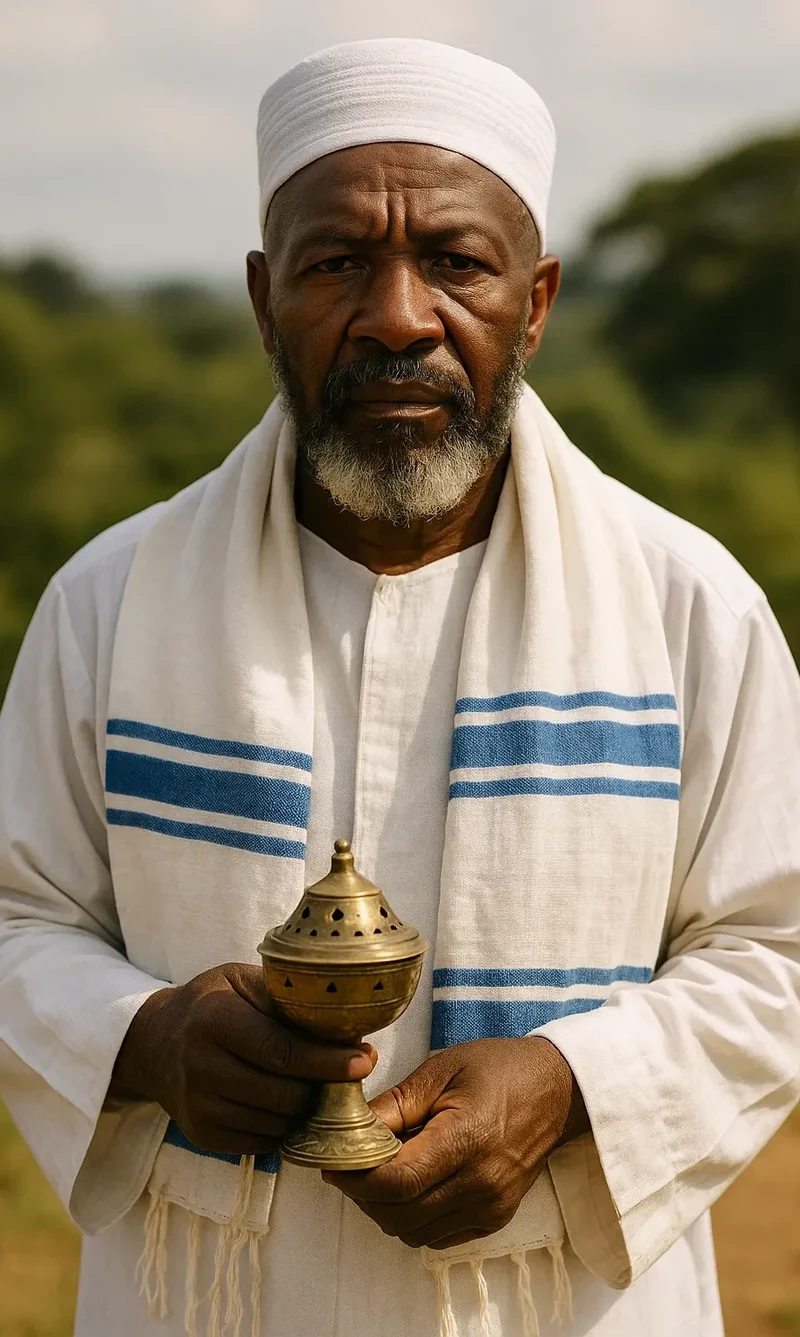Lewi
Lewi – 𐤋𐤄𐤅𐤉
Meaning in Paleo: “Joined” or “Attached.” The name reflects Leah’s hope that her husband Ya’aqob would be joined to her after she bore him this son—symbolizing unity and consecration. In the covenant, Lewi’s name came to represent the priestly tribe joined to YaHU’aH for service.
Ya’aqob’s Prophetic Word (Barashiyth):
Shim’on and Lewi are brothers; instruments of cruelty are in their dwelling place. Let my soul not enter into their council; let not my esteem be united with their assembly. For in their anger they slew a man, and in their self-will they hamstrung an ox. Cursed be their anger, for it is fierce; and their wrath, for it is cruel. I will divide them in Yashar’al and scatter them in Yashar’al.
Moshah’s Barakah (Dabarim):
Give to Lewi Your Tummim and Your Urim, with Your set-apart one, whom You proved at Massah, and with whom You contended at the waters of Meribah; who said of his father and mother, “I have not seen them,” nor did he acknowledge his brothers, or know his own children; for they have observed Your word and kept Your covenant. They shall teach Ya’aqob Your judgments and Yashar’al Your Torah. They shall put incense before You and whole burnt sacrifice upon Your altar. Bless, O YaHU’aH, his substance, and accept the work of his hands; strike through the loins of those who rise against him and of those who hate him, that they rise not again.

Priestly Lineage and Torah Preservation: Lemba (South Africa, Zimbabwe)
Tribe of Lewi (Levi)
Strongly associated with the Lemba people of Southern Africa—primarily in South Africa and Zimbabwe—the tribe of Lewi is linked to the unique priestly role in preserving the Torah and teaching righteousness to the nation.
“Let thy Thummim and thy Urim be with thy qadosh one… They shall teach Ya’aqob thy judgments, and Yashar’al thy Torah…”
— Dabarim (Deuteronomy) 33:8–10
The Lemba have maintained a number of Torah-based customs, including:
- Circumcision on the eighth day
- Kosher-style dietary laws
- Sabbath observance
- Priestly roles, especially among the Buba clan — which serves as their priestly caste
These traditions closely align with the Levitical responsibilities found in the scrolls. Unlike other African tribes influenced by idolatrous practices, the Lemba have consistently affirmed monotheism and allegiance to YaHU’aH alone — refusing to adopt the pagan systems introduced by colonial missionaries.
Modern genetic studies — most notably those led by Tudor Parfitt — revealed that a significant number of Lemba men, particularly from the Buba clan, carry the Cohen Modal Haplotype (CMH), a Y-chromosome marker associated with the biblical priestly line (Kohanim). This genetic signature supports their oral tradition of descending from ancient Hebrew priests.
Even through colonization, persecution, and missionary pressure, the Lemba have retained oral histories about an exodus, a lost scroll, a priestly mandate, and their responsibility to keep the commandments. Their unique combination of cultural preservation, geographic isolation, and biological linkage makes them one of the clearest living examples of the tribe of Lewi still teaching and upholding the covenant.
Tribal Summary: Lewi (Lemba – South Africa, Zimbabwe)
- Tribal Identity: Lewi (Levi)
- African Link: Lemba People (Southern Zimbabwe and Northern South Africa)
- Historical Context: Oral tradition and priestly lineage trace back to ancient Yashar’al
- Cultural Practices:
- Torah observance: circumcision, Sabbath, dietary laws
- Priestly clan roles (Buba)
- Monotheism and rejection of idolatry
- Scientific Evidence:
- CMH Y-chromosome links to Kohanim
- Validated by leading genetic research
Sources:
- Parfitt, Tudor. “Journey to the Vanished City.” Vintage Books, 2000.
- PBS NOVA – Tudor Parfitt and the Lemba: pbs.org/wgbh/nova/israel/parfitt.html
- Buzz South Africa – Lemba Tribe: buzzsouthafrica.com/the-lemba-tribe-culture-and-lang

